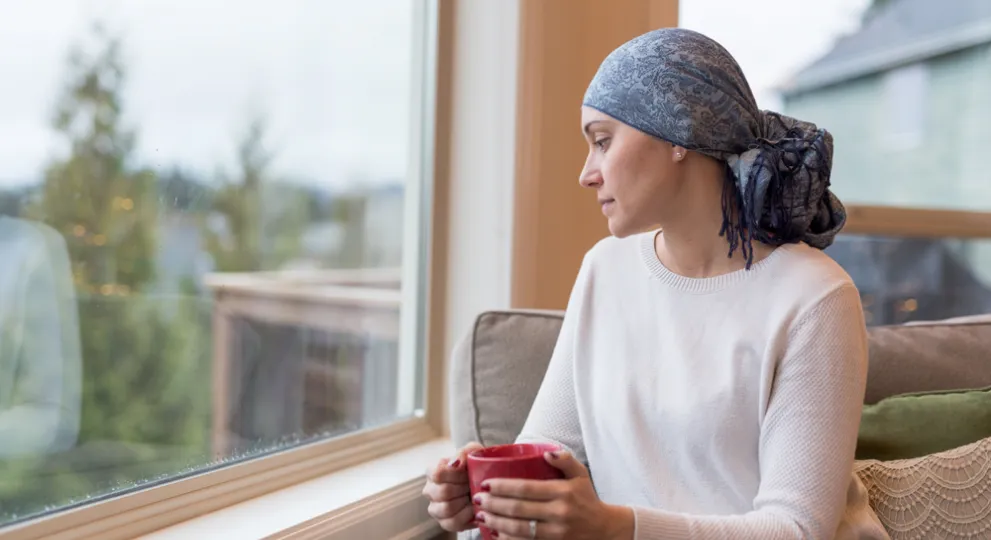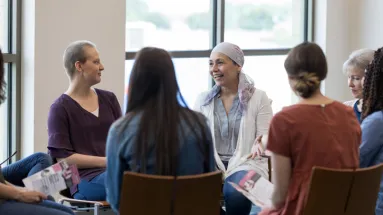Managing Fatigue When You’re Living With Breast Cancer
Managing Fatigue When You’re Living With Breast Cancer

For some people, living with breast cancer can also mean living with fatigue.
That’s true for people living with many cancers. But there are specific things that can be helpful to know about fatigue when living with breast cancer, whether you’re in treatment or post-treatment.
Fatigue is a common breast cancer symptom.
If you experience fatigue, you’re not alone. Fatigue is one of the most common symptoms reported by women in the five years after their diagnosis. Some people continue to experience fatigue for years after treatment.
Fatigue can affect your mental health, too.
Physical aspects of fatigue, such as lack of energy, can also affect your mental health. Your fatigue symptoms may include feeling anxious or sad, or having less of an interest in doing your usual activities.
Moving your body may help you feel less tired.
This might be surprising, but physical activity has been shown to help people with cancer manage fatigue. For patients undergoing radiation treatment for breast cancer — and the fatigue that commonly comes with it — regular physical activity may have benefits for both physical and emotional well-being.
Here are some Microsteps that may be considered to help manage your fatigue. As always, consult with your care team for the management practices that are best for you.
Setting a consistent bedtime and wake up time.
Research shows that this may be beneficial for people living with cancer. Aiming for consistency with your nightly bedtime and morning wakeup time may help to minimize disturbances.
Taking short rest breaks.
Resting may help you manage your fatigue, so consider setting aside time each day to close your eyes. You may want to limit your naps to 30 minutes, since longer naps may make it harder to sleep when bedtime comes around.
Drinking a glass of water when you feel fatigued.
Staying hydrated may help reduce fatigue and have an impact on other side effects including nausea and kidney damage.
Adding one gentle aerobic exercise to your daily routine.
Trying to be more physically active when you’re fatigued might not seem to make sense. But research shows that exercise may help reduce cancer fatigue and improve quality of life. Walking, jogging, cycling, yoga and Tai Chi are among the exercises that may make a difference.
Talking to your care team about exercise during treatment.
Research shows that exercising during treatment may help reduce cancer fatigue. Consider working with your care team to create a personalized plan.
Spending a few minutes meditating.
Meditation may help reduce fatigue. You can meditate in bed, while taking a walk, or any way that’s comfortable for you. You may want to focus on the rising and falling of your breath and simply be aware of the present moment.
Developed with Thrive Global













